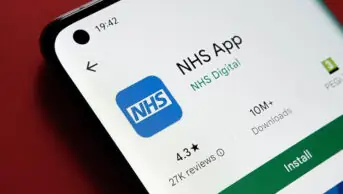
Shutterstock.com
The electronic prescription service (EPS) has been fully rolled out to prisons in England, NHS England has announced.
According to Community Pharmacy England (CPE), the change “will allow prescribers working in prisons to issue EPS ‘To Take Out’ (TTO) and urgent prescriptions electronically to community pharmacies, removing the need for use of paper FP10 forms”.
HM prison-issued FP10 or FP10MDA prescriptions are exempt from NHS prescription charges.
Each year, prisons issue around 6,000 FP10 prescriptions, according to NHS Business Services Authority data.
Even though any pharmacy may receive FP10 prescriptions, CPE said their use in community pharmacies is “expected to be relatively rare”.
CPE added that most people are released from prison with a supply of current medications, meaning that patients may not collect their EPS prescription immediately.
Those patients may also collect prescriptions in pharmacies ”far from the prison, as many people are detained a long distance from their homes”.
The rollout of EPS in prisons has been staggered, beginning in December 2024. It was delayed owing to a need for legislative changes.
Omar Al-Qaisia, health and justice lead pharmacist at Greater Manchester Health NHS Foundation Trust, said the rollout of the EPS to prisons will “enable continuity of care and reduce pressure on primary care services”.
He added that it will also help to reduce pressure on pharmacy teams — for example, if another early release scheme is announced.
Between September and October 2024, around 5,500 prisoners were released as part of the government’s early release scheme, which was an initiative to tackle prison capacity issues. At the time, NHS England wrote to pharmacists, warning them to be prepared to support patients with ongoing medicines supply.
Al-Qaisia noted the EPS rollout could also help with medicines stock issues. “Out of stock meds are a serious problem. If I’ve got a prescription for a drug that we don’t have onsite, the usual process would be to get one of the GPs to write an FP10, get that over to community pharmacy [to see if it is in stock]. It then gets dispensed and then we arrange collection to access medication that we need urgently,” he said.
He explained that the EPS could help to streamline this process, reducing the need to manually write out and order the prescription.
A spokesperson for the National Pharmacy Association said: “EPS is now an established system in community pharmacy and so it makes sense to also roll this out in prisons in order to simplify the process for dispensing medication in this setting.
“This move will help ensure timely access to medication from community pharmacies for people released from prison, especially to those returning to homes far from prison, and supports continuity of care.”
You may also be interested in

Reviewing prescribing practice in an adult critical care unit with a newly implemented electronic prescribing system
Prescription tracking app to be used by more than 5,000 pharmacies within a year, says NHS England
